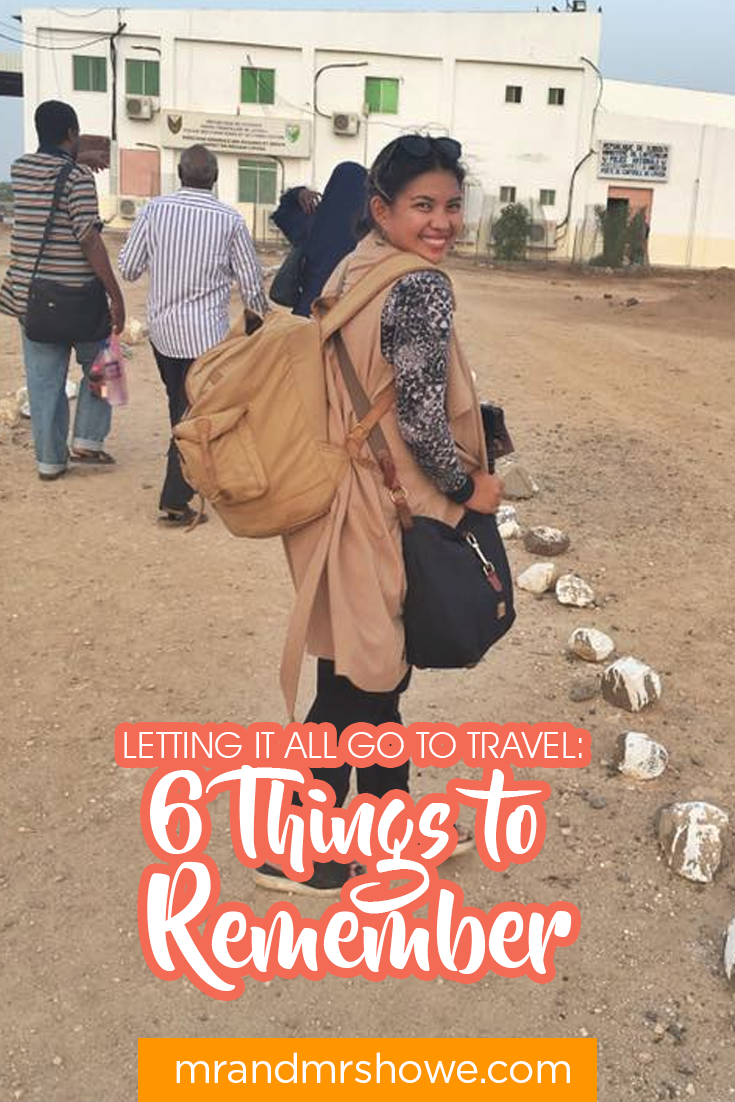6 Steps To Remember Before You Quit Your Job To Travel the World
Most of us are conditioned from a very early age to believe in a set of fixed values and customs, some, if not most, of which revolve around education, career, family and the majority’s definition of success.
To put it simply, you should go to university, build a career, buy a car, get married, buy a house, raise your babies …you get the idea. If you’re lucky, by the time you hit retirement age you’ll still be in good enough health and have enough cash saved up to get back to having fun again.
Well, what if you don’t want to wait until you reach old age to have fun?
Before you let it all go and fly off on your great adventure, consider these:
1. Deal with ALL of your commitments at home
Traveling is the ultimate great escape for many reasons, however there are some problems that are not going to go away just because you flew off somewhere.
Unpaid credit cards, family problems and other unresolved personal issues will quietly stow themselves away while you travel the world, enjoying your new life, meeting amazing new people, just waiting for the right moment to jump out of your backpack and slap you in your happy-go-lucky face.
2. The process of saving
The most obvious steps often feel like the hardest to overcome. Almost every traveler, long- and short-term, has had to work in his own country for what seems like an eternity in order to afford that first flight. (READ: For 20-somethings, 9 money resolutions to help you save)
One thing that we can both testify to however, is that as soon as you set your goals and decide on a departure date, the mental process of saving becomes so much easier, even enjoyable. That expensive coffee or new t-shirt you could buy transform in your mind into the building blocks of your impending adventures. It’s no longer a sacrifice, but another small triumph on your quest to change your life.
The best way to save is to be organized. Buy a planner, figure out your fixed expenses and start writing down every bit of money you spend, no matter how small or insignificant it might seem. At the end of each day, calculate the total and ask yourself, ‘What did I not need to buy today?’
You’ll quickly identify all of those small purchases, which add up over the week or month, then you can find ways to cut down on unnecessary expenses.
For example, are you a fresh coffee addict? Buy a cheap French press or second-hand coffee maker and a thermos flask. Over 6 months or a year you could save a lot of money on expensive cappuccinos!
You might not have to wait until you have all your travel savings before booking your flight. If you are really committed to this, as soon as you have enough for your ticket, BUY IT! This positive action further cements your goals in place and you will be amazed at how it makes you feel. It also lets anyone who doubts your commitment, or thinks you’re just “going through a phase” know that you’re deadly serious, which also feels fantastic.
3. De-clutter and only keep what can fit your backpack
We all do it the first time we go backpacking – Thinking that we’ve packed light just because we’re only taking half of the clothes in our wardrobe. However much stuff you think you have, it’s too much! Up the number of underwear, decrease everything else. Look at your gadgets – can you perform the same task with more than one item? Choose one!
The open road can teach you many important things about who you are and what you want to be, but it is also the path by which your problems follow you – and they don’t need a visa to cross borders.
I know that in Philippine culture, we often support our families after graduating from university. While working in the Middle East, although it wasn’t expected, I was sending money to my siblings and grandparents on an almost monthly basis, but when I decided to quit my job and pursue my life-long dream, I spoke with them and told them I couldn’t afford to send money anymore as I had to save up for my impending unemployment.
Yes, it might sound selfish or irresponsible and family is different, but in my own experience, you may find that families will be understanding and supportive, even if they don’t seem that way at first. Do what makes you happy!
A 20-kilo backpack might feel fine when you carry it for 30 seconds at home, but when you’re queuing up to cross the Thai-Cambodian border for 2 hours, in 40 degree heat, you’ll realize the error of your ways. Wear the same pair of shorts every day. Wash your t-shirt in the sink of your shared bathroom. You’ll thank yourself later.
4. Plan your initial route… then go with the flow
Planning is important, especially if it’s your first time traveling alone for an extended period of time. Do a little research on your first destination, get useful advice from other travelers and online communities, maybe even book your first hostel so you have a place to go as soon as you land.
You certainly don’t have to and probably won’t continue this way for long. Once you’ve spent a week or even just a few days away, you’ll meet other people and create spontaneous plans together or on your own.
When I first set off traveling in Southeast Asia, I was with my brother and sister, so we had a well-planned route through Thailand, across Laos and into Hanoi. Once they went home, however, my trip was a book with the chapters yet unwritten.
I traveled with people I met the same day, changed plans at a moment’s notice and decided on a whim to spend a month studying yoga on a tropical island.
One of the best things about traveling is not knowing exactly where you’ll be next week, hearing about places from other people and just deciding to go there the next day. It’s a balance that’s personal to everyone and everyone will inevitably find his own way.
5. Invest in Skills
If you’re traveling around the world, sooner or later you’re going to need more income, even if it’s only to pay for food and drinks.
You may want to invest in a TEFL teaching certificate to make sure that when you’re ready to start earning again, you will always have access to some kind of work. It’s also worth mentioning that in some countries, like Vietnam for instance, Filipinos can earn the same amount as Europeans, Australians, Americans and British, because many of us are native English-speakers. A few more tips can be found here.
In some cases you need to inform the employer that in the Philippines, many children learn English and Filipino simultaneously, and speak both languages growing up. You can earn between $19 and $25 per hour by teaching English in Vietnam. Click here for more ideas for income-generating skills for travelers.
We have also partnered with World Tesol Academy to provide an online TESOL certification course for the lowest price you will find anywhere – $34 USD! We recognised how badly affected many people around the world have been by the Covid / Coronavirus situation. So, we spent a lot of time discussing with this great company how they could come up with an affordable solution to help people afford the opportunities that an online TEFL / TESOL certification can bring.
6. Reduce your travel costs.
Join websites like Couchsurfing.org, attend the gatherings in Manila, meet travelers and get more information from them. When you start to travel you can easily find hosts for a place to stay or just to meet local friends.
Not only will you meet great local people who can take you beyond the tourist traps, you might even get a free bed for the night. (You can always cook them a Filipino dinner to say thank you!)
On my siblings’ first trip outside the Philippines, we flew to Bangkok and stayed with Couchsurfing hosts in Bangkok and Chiang Mai. We even Couch-surfed in Laos and Vietnam. You can also join a Housesitting website if you’re thinking about staying somewhere a bit longer for free.
Another option for saving money is to volunteer in exchange for a bed and at least one good meal per day. Whether you want to give back to society or just to learn new things, try joining websites like woofing.com or helpx.net. Remember though, you should never pay to volunteer, your time, help and enthusiasm should be enough.
After everything you’ve worked for and achieved to make this happen, pause slightly before every step you take – out of your house, into the airport, onto the plane – your first footsteps on a foreign land. All of this is happening because of you, and you deserve to enjoy every second of it.
Are you on Pinterest? Pin these!

















